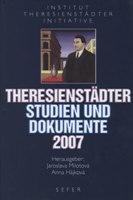Irish Vote, Europe’s Future: Four options after the “No”
Irish Vote, Europe’s Future: Four options after the “No”
Ireland has rejected the Treaty of Lisbon. More than six years after the start of the constitutional process, the work and effort of the European Union seems to have been in vain. The intention was to make the com-munity more effective and far more democratic. All that remains is a feel-ing of helplessness. What, if anything, can European policymakers do in this situation?
More...
